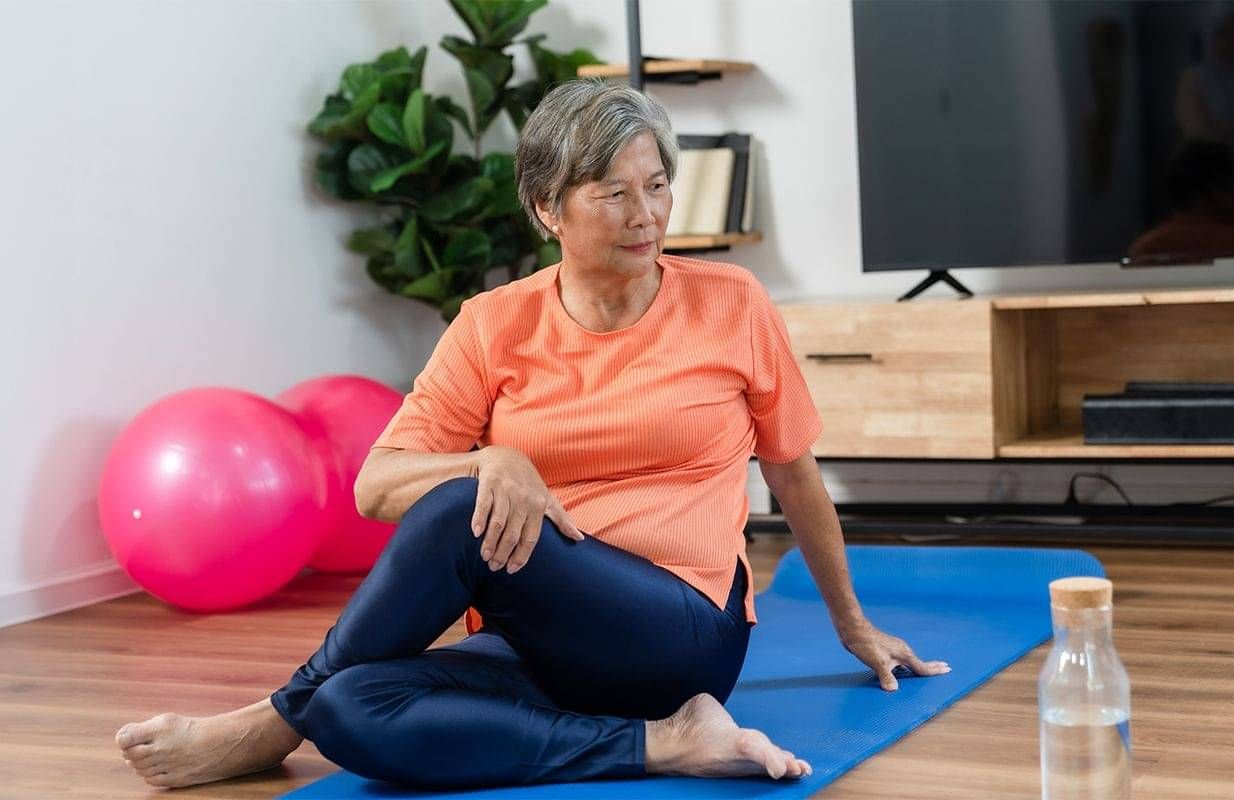While exercising can be challenging during treatment, there are a number of benefits to keeping physically active before, during and after treatment. Start off small, with what feels manageable. Expect that your energy levels will go up and down day-to-day, so remember to work with what your body is telling you.

What are the benefits of exercise?
It’s the most effective treatment for cancer-related fatigue - studies show those who exercise regularly experience 40% to 50% less fatigue during treatment.
regular exercise increases muscle strength, improves joint flexibility and overall ability to do daily activities which may be impaired after surgery and other therapies
physical activity helps control weight and maintain muscle which is a critical factor during cancer treatment
regular exercise leads to improved mental wellbeing and a greater quality of life overall
emerging evidence suggests that regular exercise before, during and/or following cancer treatment reduces the severity of side effects and provides a protective effect against cancer recurrence
research supports an increased life expectancy for people who exercise after surgery and while on treatment.
Remember, the exercise you choose should be compatible with your body and your treatment program. Before starting an exercise program, you should speak to your doctor or cancer care team about what exercise is appropriate for you and whether there are any particular activities or movements you should avoid.
How much exercise should I do?
Although you may not feel like it, it’s recommended that all people with cancer should aim for (or build up to) and then maintain:
20-30 minutes of moderate exercise daily such as brisk walking or yoga, or 75 minutes of vigorous activity such as jogging, cycling or gym classes each week
2-3 sessions of weight training or muscle-strengthening exercise a week
What kind of exercise should I do?
The ideal exercise program should cover all components of fitness including:
cardiovascular (get your heart rate up and breathing a bit heavier)
strength (e.g. lifting weights, using resistance bands or exercises using your body weight, such as push-ups)
balance and flexibility.
Walking, jogging, swimming and cycling are all great choices. Gentle forms of exercise such as Tai Chi, Qi Gong, Yoga or even gentle stretching can also be incorporated into your daily life.
Simple strategies to support exercise
set goals that are achievable and keep a diary of your achievements
start with small amounts, such as 5 minutes of walking, and build up as you can
keep it fun and have a friend support you
see if your local cancer society has exercise sessions
yoga and tai chi are both good forms of exercise.
Choosing activities that you enjoy will make it easier for you to be consistent.
For some people exercise becomes a new passion following treatment.
Taking care while exercising
While exercise has proven benefits, it’s important to take care to ensure that your exercise program doesn’t compromise your health or safety.
Things to consider include:
check that your blood levels are within a safe range. Low blood cells may cause fatigue. Low white blood cells may affect your ability to fight infection, so you might not want to exercise around others or in public venues
if you are having radiation therapy, avoid exposing skin in and around the treatment area to chlorine in swimming pools
if you are taking blood thinners you may experience issues with bleeding and should avoid situations that risk falls or other injuries
if you have a catheter or feeding tubes you need to avoid bodies of water that could cause severe infection. You should also take care that your physical activity won’t dislodge your tube
build your exercise up gradually, especially if you have lost muscle strength and aerobic fitness
allow adequate time to heal after surgery.
When should I stop exercising?
If you experience any unusual or concerning symptoms you should stop exercising and consult your doctor. Things to be aware of include:
swollen ankles, neck, face or arms — seek urgent medical help
feeling dizzy or fainting while exercising
shortness of breath with only mild exertion
chest pain or palpitations
sudden onset of nausea during exercise
chills or shaking during exercise
severe vomiting or diarrhoea
high temperature or unusual pain.
Of course, there will be some days when you don’t feel up to exercising. That’s okay. Try to do something that involves moving your body; light movement, a short walk or gentle stretching. You may find that your energy or mood improves - listen in and be kind to yourself.












